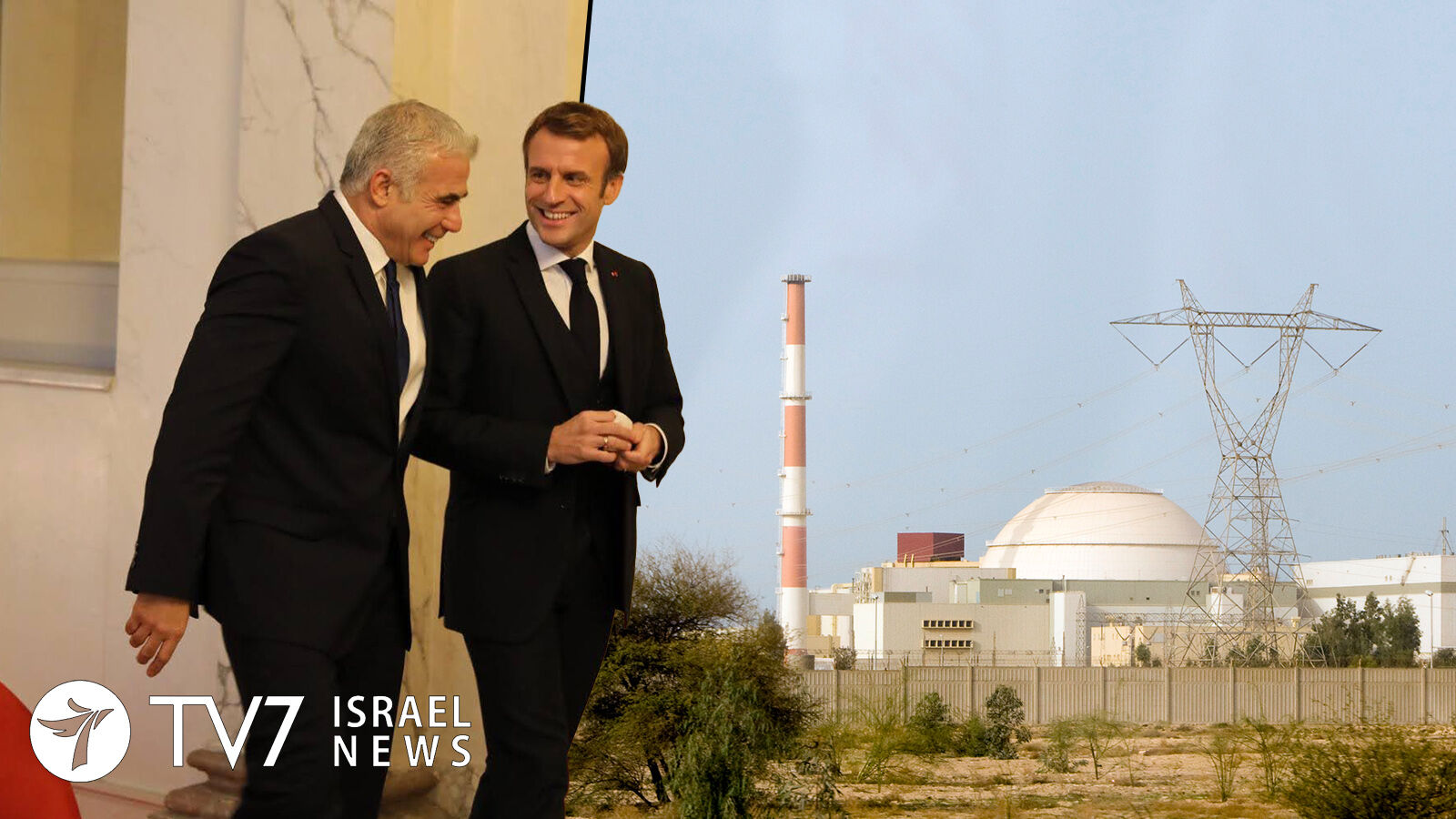Jerusalem is calling on world leaders not to lift sanctions on Iran as part of the revived Vienna Talks, but to instead maintain pressure and increase supervision of the Islamic Republic’s nuclear program.
By Erin Viner
Israeli Minister of Foreign Affairs and Alternate Premier Yair Lapid concluded 3 days of talks in the European capitals of London and Paris on the Iranian nuclear issue. His tour was held in tandem with last-ditch efforts between world powers and Iran in Austria to revive the 2015 Joint Comprehensive Plan of Action (JCPOA), to which Israel is opposed as insufficient to prevent Tehran’s acquisition of nuclear weapons. Tehran began openly violating its atomic curbs after then-US President Donald Trump withdrew from the JCPOA in 2018.
The Ayatollah regime has repeatedly vowed to annihilate the Jewish State. Israel has consistently warned that its arch-enemy will try to secure a windfall in sanctions relief at the talks, without sufficiently rolling back nuclear bomb-making potential through its accelerated enrichment of uranium.
During the final meeting of his European tour, which included previous talks with Britain’s Prime Minister Boris Johnson and Foreign Secretary Liz Truss, Minister Lapid said he also discussed the resumption of talks with Iran at length with French President Emmanuel Macron.
According to a statement TV7 obtained from the Ministry of Foreign Affairs, Lapid reiterated the Israeli position that “Iran is trying to buy time in order to move forward with its nuclear program,” while stressing “the immediate need for the strengthening of sanctions by the powers and the urgent need for a ‘Plan B.’”
‘Plan B’ includes a potential military strike plan on Iranian nuclear sites to halt weapons production.
“After many years, Israel’s position is being heard and Israel’s position is firm. Sanctions on Iran must not be lifted. Sanctions need to be tightened, there needs to be a credible military threat on Iran, because only this will prevent it from continuing its race towards a nuclear weapon. That race did not stop here, and it did not stop with the talks in Vienna,” Lapid underscored, said the statement.
The Israeli Foreign Minister also vowed that, “together with Prime Minister Naftali Bennett and Defense Minister Benny Gantz, who is traveling to Washington next week, we will continue to work so that the world will fully understand the Iranian threat.”
Later in their conversation, which Lapid described as “a long and warm meeting,” he and President Macron discussed bilateral relations between their two countries, as well as “possibilities for expanding and deepening cooperation in security, economic, and other areas.”
